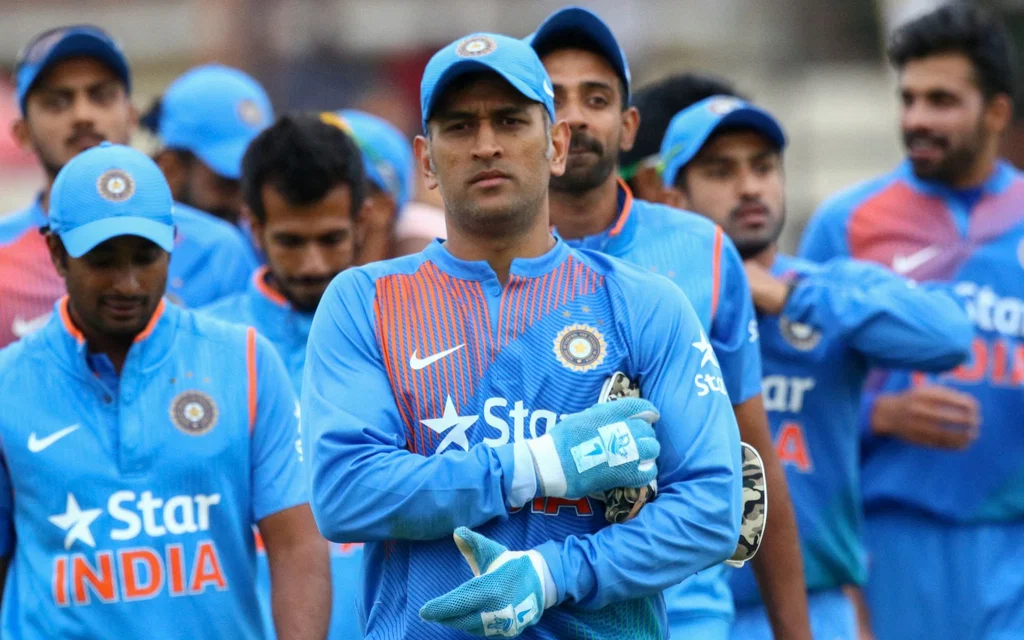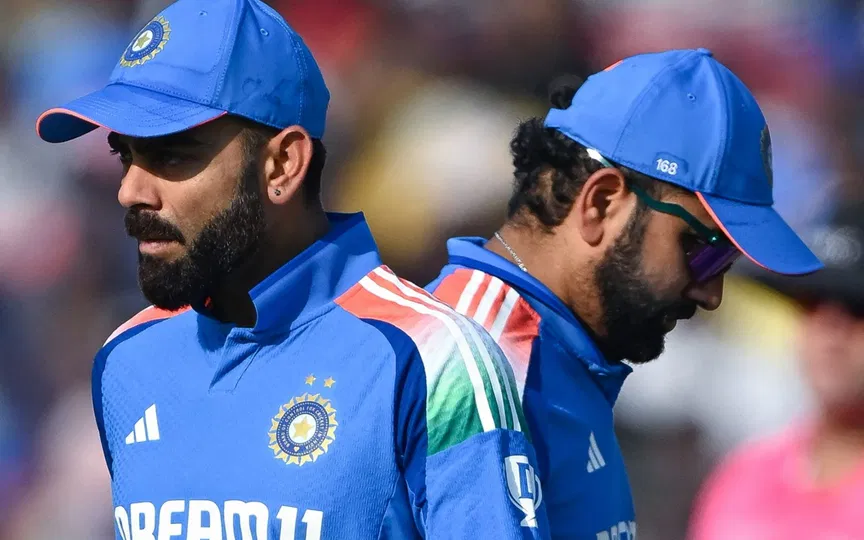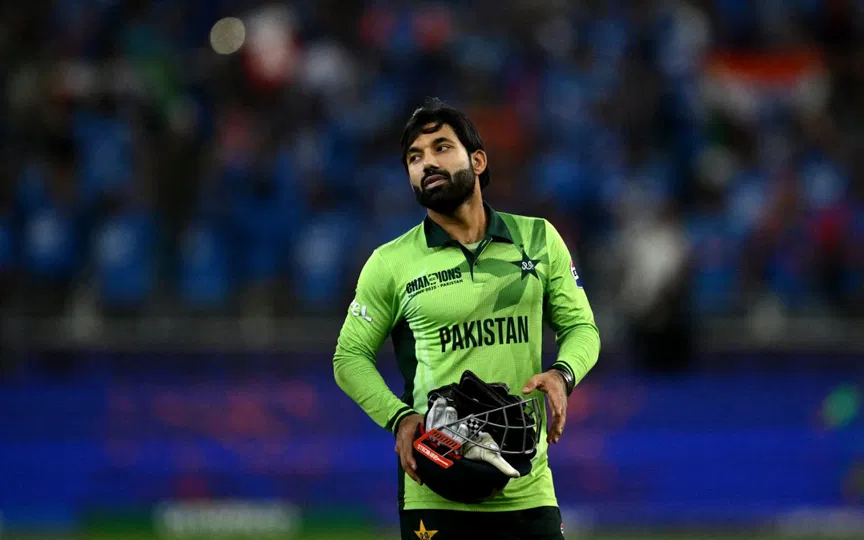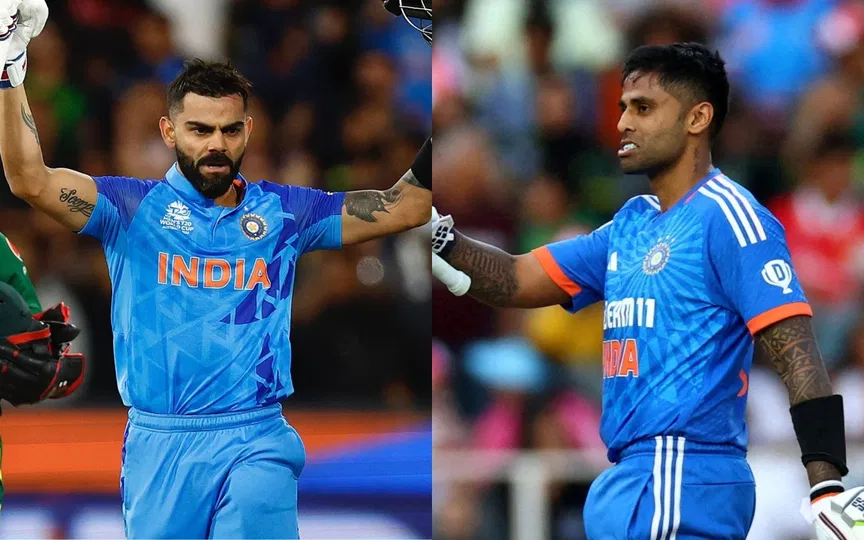 MS Dhoni's captaincy legacy (Source: AFP)
MS Dhoni's captaincy legacy (Source: AFP)
When big names like Rahul Dravid and Sachin Tendulkar declined the captaincy ahead of the T20 World Cup 2007, a quiet man from Ranchi, Jharkhand, MS Dhoni stepped up! What followed wasn’t just India’s first ICC T20 title; it was the birth of a leadership style that changed world cricket forever.
Nearly two decades later, as teams prepare for the 2026 T20 World Cup, Dhoni’s captaincy blueprint remains the gold standard for handling pressure, trusting instincts, and winning big moments.
Captain Cool’s timeless blueprint for captains ahead of the T20 World Cup
Dhoni's captaincy spanned 72 T20 Internationals from 2007 to 2016, marking the longest stint as an Indian T20 captain. “Captain cool” is not just a nickname earned by him, but also a phrase that encapsulates his leadership style.
Taking up the Indian captaincy right before the T20 World Cup, a new and unheard format, MSD mastered the ability to silence the noise of the high-stakes matches. Coupled with calculated yet unusual decision-making, the former Indian captain, even under pressure, refused to lose his composure.
Calm, Calculated & Contagious
Many captains came before Dhoni and a few after him, but what sets him apart is his calmness and strategic ability. The ‘man with the Midas touch’ took the Indian cricket team to the highest honours across all formats, driven by his unconventional decision-making, instincts, composure, and player management.
While his ability to adapt to situations and oppositions was hailed by many, his knack of keeping his side involved until the end overs in a calm and composed manner was the main reason for his resounding success.
Let me remind you of three instances in the T20 World Cups to back this claim:
Backing the rookie in a high-stakes final
In the inaugural T20 World Cup final in 2007, the first-time captain, Dhoni, gave the ball to a relatively inexperienced Joginder Sharma in place of many senior names. And the result? We know it all! Backing his gut feeling, Dhoni’s choice changed history as India won the title, defending 13 runs in the last over.
Iconic final-ball run-out against Bangladesh
The T20I World Cup 2016 Super 10 match played between India and Bangladesh for a spot in the semi-finals turned out to be one of the most engaging and thrilling matches in the shortest format of the game. Bangladesh, needing 2 runs off the final ball, seemed the favorite. However, MS Dhoni’s tactical brilliance defied the result of the game.
A short-pitched ball was bowled by Hardik Pandya, trying to defend 2. However, what stood out the best was Dhoni’s decision to set ready for a run-out, analysing the game situation, instead of not throwing the ball, he trusted his speed and ran to dislodge the bails. The decisiveness was a clear instance of his game awareness.
The India vs Pakistan bowl out
In the inaugural edition of the T20 World Cup, in case of a tie, the teams played a bowl-out to finalize the result of the match. Notably, in India’s first match against Pakistan, the match was tied, and the teams battled an unusual bowl-out.
While Pakistan selected their three conventional bowlers in Shahid Afridi, Umar Gul, and Yasir Arafat and all of them failed to hit the stumps. The Indian captain went with Virender Sehwag, Harbhajan Singh, and Robin Uthappa to everyone's surprise.
Notably, all three of them hit the stumps, and India eventually took the game home. Later, it was revealed that under MSD’s guidance, certain players practiced bowl outs before the tournament, which proved that he didn’t leave any stone unturned going into the marquee tournament.
What do the present-day leaders learn from MSD’s leadership precedent?
Here comes what the current captains can learn from these ideas and belief systems. Captains must be willing to trust their instincts instead of going the traditional way. Moreover, rather than blindly following the set rotation, think the unthinkable and back your team even in pressure situations.
Hence, even though he is not a part of the Indian setup anymore, his timeless leadership abilities remain a plan that could be followed by the present-day white-ball captains like Suryakumar Yadav, going into the T20 World Cup, set to be played in 2026.

.jpg)




